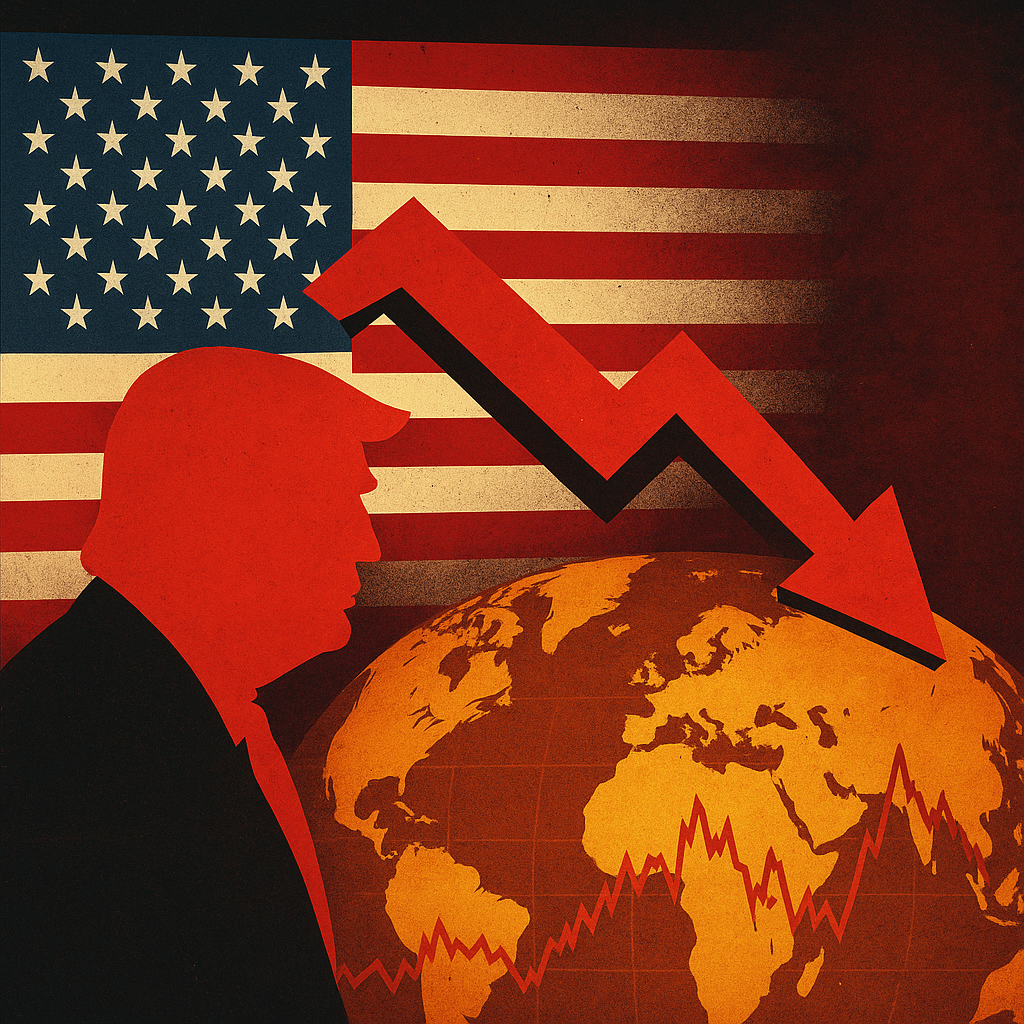Markets React Sharply as Tariff Shockwave Signals Return to Protectionism
Global financial markets were jolted on August 1st as former U.S. President Donald Trump announced a sweeping new tariff regime affecting more than 68 trading partners, including major economies such as Canada, Brazil, India, and Taiwan. The tariff schedule—ranging from 10% to as high as 41%—triggered an immediate sell-off across global indices, with U.S. futures falling sharply in premarket trading and the S&P 500 and Nasdaq both retreating from recent record highs.
The policy move marks a dramatic escalation in U.S. trade protectionism and is already reshaping investor sentiment as concerns mount over retaliatory tariffs, disrupted supply chains, and inflationary pressures in a slowing global economy.
Trade Tensions Trigger Broad Market Pullback
In a press release and subsequent remarks to reporters, Trump framed the tariffs as “corrective measures” designed to protect U.S. manufacturing and technology leadership. However, the broad geographic scope and severity of the new levies shocked global markets. According to Reuters, Canadian exports to the U.S. will face a weighted average tariff of 35%, with similar rates hitting Brazilian agricultural goods and Indian pharmaceuticals.
The MSCI World Index fell nearly 1.9% intraday, its worst single-day performance in over three months. Meanwhile, the VIX—Wall Street’s “fear index”—spiked to 22.4, signaling heightened volatility. Currency markets were equally unsettled, with the Canadian dollar and Brazilian real both depreciating against the U.S. dollar.
Why This Matters for Investors
1. The Return of Protectionism:
This move underscores a larger trend of deglobalization that has accelerated since the pandemic. While some sectors, such as U.S.-based utilities and consumer staples, may prove resilient, trade-dependent industries—including semiconductors, automotive, and industrials—face material downside risk. According to J.P. Morgan, nearly 44% of S&P 500 companies rely on international revenues.
2. Supply Chain Risk is Back:
The global economy has just begun to recover from COVID-era disruptions and inflationary pressures. The new tariffs introduce fresh logistical and cost hurdles for cross-border trade. Companies like Apple, which rely heavily on Asian manufacturing, may see margin pressures increase if costs are passed down the chain.
3. Inflationary Undercurrent:
Tariffs act as a tax on imports, and the ripple effect is likely to be inflationary. According to Bloomberg Economics, the last round of Trump-era tariffs contributed between 0.3%–0.5% to core inflation. In an environment where the Federal Reserve is still weighing interest rate cuts, this policy move could complicate the central bank’s path forward.
Expert Commentary and Credible Sources
Citi’s chief global strategist, Catherine Mann, noted that “markets had not priced in a revival of full-scale trade tensions, and this announcement reintroduces geopolitical risk as a macro driver.”
A separate report from The Guardian and Reuters confirms that the new tariffs were met with strong disapproval from Canada’s Ministry of Trade and Brazil’s Foreign Affairs department, with both hinting at “targeted retaliatory measures” that could further destabilize market sentiment in the coming weeks.
Key Investment Insight
Investors should prepare for prolonged volatility and consider defensive positioning. Domestic-facing sectors such as utilities, healthcare, and consumer staples may serve as relative safe havens. On the other hand, companies with high foreign revenue exposure or complex global supply chains may face valuation compression. Geographic diversification away from highly exposed trade corridors—particularly in Asia-Pacific—should be strongly considered.
For more aggressive investors, short-term volatility may present opportunistic entry points into quality names affected by headline risk but with strong fundamentals.
Stay informed with real-time investor analysis from MoneyNews.Today, your trusted source for actionable insights and market intelligence.





